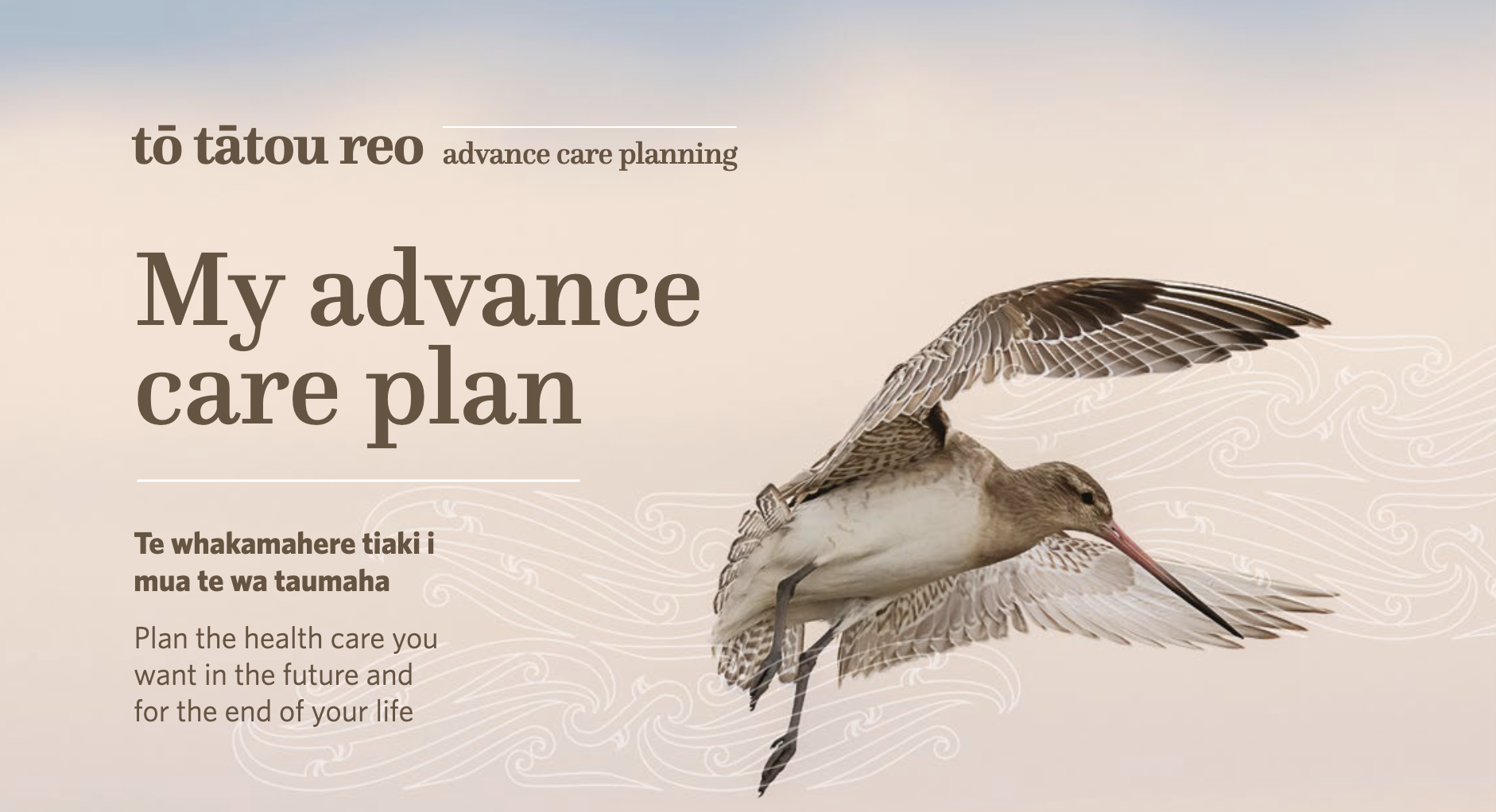Supporting the needs of clients in aged care involves a holistic and person-centered approach to care. It encompasses various aspects of their well-being, from physical care to emotional support and social engagement. In terms of personal care, caregivers assist clients with activities of daily living, such as bathing, dressing, grooming, and mobility. Respect for their dignity, privacy, and autonomy is paramount, ensuring that clients feel comfortable and maintain their sense of self.
Monitoring and managing clients' health is another crucial aspect of care. This includes regularly assessing vital signs, administering medications, managing chronic diseases, and coordinating with healthcare professionals for necessary interventions. By closely monitoring their health, caregivers can identify any changes or concerns and take appropriate action promptly.
Emotional support plays a significant role in aged care. Caregivers provide a compassionate and empathetic presence, acknowledging and validating clients' feelings and concerns. Establishing trusting relationships and active listening help address emotional well-being, reduce anxiety, and enhance overall mental health. Social engagement is vital for clients' well-being. Caregivers organize social activities, outings, and recreational programs to promote interaction and combat feelings of loneliness or isolation. By fostering connections with others, clients can maintain a sense of belonging and purpose. Nutrition and hydration are fundamental aspects of care. Caregivers ensure clients receive balanced and nutritious meals that align with their dietary needs and preferences. They may provide assistance with feeding when necessary and encourage proper hydration to support overall health and well-being.
Safety is a key consideration in aged care. Caregivers identify and address potential hazards to create a safe environment. Fall prevention strategies, such as regular assessments, modifications to the physical environment, and the use of assistive devices, help reduce the risk of falls and associated injuries. Collaboration with the multidisciplinary care team is crucial to meet clients' diverse needs. Caregivers work alongside healthcare professionals, social workers, and allied health practitioners to develop individualized care plans, ensure coordinated care delivery, and advocate for clients' rights and preferences. Ultimately, supporting the needs of clients in aged care requires a comprehensive and compassionate approach. By addressing physical, emotional, social, and psychological aspects, caregivers help enhance clients' overall well-being, maintain their independence, and improve their quality of life.

Client-centred care also known as “Person-centred care”, can be described as "providing care that is respectful of and responsive to individual client preferences, needs, and values and ensuring that client values guide all clinical decisions." (Institute of Medicine)
Person-centred approaches are widely used in the New Zealand healthcare sector. It can be seen as a 'toolbox' of ways to listen and gather information enabling clients to share health decisions and inform a care plan.
Principles of client-centred care include:
- respect
- emotional support
- physical comfort
- information and communication
- continuity and transition
- care coordination
- involvement of family and carers
- access to care.
(Client and Person-centred Care, 2022)
Watch the following video explaining person-centred care.

A culturally centered approach in aged care refers to a way of providing care and support that respects, values, and incorporates the cultural background, beliefs, customs, and preferences of individuals receiving care. It recognizes that culture plays a significant role in shaping a person's identity, values, and perceptions of health and well-being. A culturally centered approach aims to provide care that is sensitive, responsive, and tailored to meet the unique needs and preferences of individuals from diverse cultural backgrounds. It involves the following key principles:
- Cultural Awareness and Respect: Care providers develop an understanding and appreciation for the cultural diversity within the community they serve. They respect the beliefs, practices, and traditions of individuals from different cultural backgrounds and value their perspectives.
- Effective Communication: Communication is adapted to accommodate cultural differences. Care providers seek to understand and utilize appropriate communication styles, language preferences, and non-verbal cues that are culturally meaningful to effectively engage and understand the needs of individuals.
- Individualised Care Planning: Care plans are developed in collaboration with individuals and their families, taking into account their cultural beliefs, values, and preferences. This involves tailoring care practices, routines, and activities to align with cultural customs and practices while ensuring the safety and well-being of the individuals.
- Culturally Sensitive Practices: Care providers are trained to recognize and respond to cultural differences and needs. This includes understanding cultural norms around personal care, dietary preferences, spiritual or religious practices, and end-of-life rituals. They incorporate culturally appropriate practices into the care provided, ensuring that individual dignity, privacy, and autonomy are respected.
- Collaborative Decision-Making: In a culturally centered approach, individuals and their families are actively involved in decision-making processes related to their care. Their voices are valued, and their input is sought to ensure that care decisions align with their cultural values and preferences.
- Staff Diversity and Training: Aged care organizations strive to have a diverse workforce that reflects the cultural backgrounds of the individuals they serve. This diversity promotes cultural understanding and provides an opportunity for staff to learn from each other. Ongoing training and professional development programs equip staff with the knowledge and skills needed to provide culturally sensitive care.
Image referenced from Therapeutic Landscapes paper by Jacqueline McIntosh et al.
Te Wheke, also known as the octopus, is a health concept by Rose Pere, a renowned Māori spiritual and academic leader.
This concept recognizes that all aspects of a person's life are interconnected and must be addressed for overall health and flourishing. The following is a breakdown of the elements:
- Te Whānau | The family. The body and head represent the individual whānau unit.
- Waiora | Wellbeing. The "eye" of the symbolic family unit will reflect total well-being.
- Wairuatanga | Spirituality. The creator is a powerful influence, and the uniqueness of being Maori is sustained through this belief.
- Mana Ake | Awareness of hereditary from forebearers. Unique identity of individuals and family.
- Mauri | Life force. An appreciation of the mauri (life force) of objects, individuals, whānau (family), and every whānau within a community.
- Hinengaro | The mind. Learning that arouses, stimulates and uplifts is important.
- Whatumanawa | Open and healthy expression of emotion. An understanding of emotional development in all areas.
- Whanaungatanga | Extended family. The principle of all working to support each other across generations.
- Taha Tinana | Physical Wellbeing. Specific physical, material, emotional and social needs related to physical survival.
- Ha a koro ma a kui ma | Breath of life from forbearers. Links with heritage passed down by our forebearers.
Learning Checkpoint
Culture plays a significant role in shaping an individual's mental health and well-being. Here are some ways in which culture impacts mental health:
| Beliefs and Values | Culture influences an individual's belief systems, values, and attitudes towards mental health. Cultural beliefs may shape perceptions about mental illness, the causes of distress, and appropriate ways of seeking help. Cultural norms and values can influence whether individuals feel comfortable discussing their mental health concerns or seeking professional support. |
|---|---|
| Stigma and Discrimination | Cultural attitudes and stigma surrounding mental health can impact how individuals perceive and cope with mental health issues. Some cultures may stigmatize mental illness, viewing it as a personal weakness or a result of moral failing. Stigma and discrimination can lead to feelings of shame, isolation, and reluctance to seek help, hindering access to appropriate mental health care. |
| Cultural Expression and Coping Mechanisms | Different cultures have distinct ways of expressing and coping with emotional distress. Cultural practices such as rituals, spiritual beliefs, community support networks, and traditional healing methods may play a role in managing mental health. These cultural coping mechanisms can provide individuals with a sense of identity, meaning, and support in times of difficulty. |
| Language and Communication Styles | Language and communication styles vary across cultures and can impact mental health care. Some cultural groups may have unique expressions for emotional distress or symptoms, requiring cultural competence and sensitivity from mental health professionals to accurately understand and address their concerns. Language barriers may also impact access to mental health services for individuals who are not fluent in the dominant language. |
| Family and Social Support | Family and social support systems differ among cultures and can significantly influence mental health outcomes. Collectivist cultures may prioritize family cohesion and support as a key aspect of mental well-being. In contrast, individualistic cultures may emphasize personal autonomy and self-reliance. The availability and quality of social support networks can impact resilience, coping strategies, and overall mental health. |
| Acculturation and Immigration | The process of acculturation, particularly for immigrants and refugees, can have implications for mental health. Individuals may experience challenges related to adapting to a new culture, language barriers, discrimination, and loss of social support networks. Cultural identity conflicts and the pressure to navigate multiple cultural contexts can contribute to stress, anxiety, and depression. |
While culturally centered care is essential in providing holistic and personalized care, it can also present several challenges. Here are six challenges that may arise when implementing culturally centered care:
- Diversity and Language: Cultural diversity within a community may pose challenges in understanding and addressing the needs of individuals from various cultural backgrounds. Language barriers can hinder effective communication, making it difficult to fully comprehend individuals' experiences, concerns, and preferences.
- Stereotyping and Generalization: Cultural stereotypes and generalizations can be misleading and may lead to assumptions about individuals' beliefs, behaviors, and values. It is crucial to avoid making assumptions based on cultural background and instead recognize the uniqueness and diversity within cultural groups.
- Cultural Competence: Providing culturally centered care requires healthcare professionals to possess cultural competence, which involves understanding and appreciating diverse cultural beliefs, practices, and norms. Developing cultural competence may pose challenges, as it requires ongoing education, self-reflection, and experience in working with diverse populations.
- Conflicting Cultural Values: Different cultural values and beliefs may conflict with one another or with the norms and expectations of the healthcare setting. Balancing and reconciling conflicting values can be challenging, requiring careful consideration, communication, and negotiation to ensure culturally appropriate care.
- Limited Resources and Training: Adequate resources and training focused on cultural competence and cultural safety may be limited. Healthcare organizations may face challenges in providing comprehensive cultural competency training to all staff members, resulting in variations in the level of cultural sensitivity among care providers.
- Ethical Dilemmas: Cultural practices or beliefs may clash with ethical standards or legal requirements in healthcare. Ethical dilemmas can arise when balancing cultural practices, individual autonomy, and the duty of care. Navigating such dilemmas requires careful ethical analysis, open communication, and collaboration with individuals, families, and the healthcare team.
When providing specialised care for Maori and Pasifika clients, it's crucial to recognise and respect their unique cultural backgrounds, values, and beliefs. Cultural competence and sensitivity are essential to ensure that the care provided is effective, respectful, and appropriate. Here are some considerations for developing specialised care plans for Maori and Pasifika clients:
- Cultural Awareness and Education: Embrace cultural awareness training to understand the influences of history, society, and culture on Māori and Pasifika health beliefs and practices.
- Building and Strengthening Relationships and Communication: Whakawhanaungatanga and Whakapā: Foster meaningful connections with individuals, whānau, and communities during care planning, employing culturally appropriate communication with interpreters or cultural advisors as needed.
- Whānau (Family) Involvement: Acknowledge the significance of family support and involve them in care discussions and decisions.
- Holistic Care Approach: Address physical, mental, spiritual, and social aspects of health in care plans, respecting the interconnected dimensions.
- Manaakitanga (Hospitality and Respect): Demonstrate respect and hospitality, using appropriate greetings and terms of respect. Tapu (sacredness) and Noa (ordinary): Be mindful of sacred elements and create comfortable environments for clients.
- Cultural Practices: Understand and discuss traditional healing practices, integrating them safely with conventional medicine.
- Health Disparities: Tailor care to address health disparities and strive for equity in health outcomes.
- Community Resources: Familiarize with community support services for Māori and Pasifika populations to enhance care.
- Continuity of Care: Involve primary care providers and culturally aware specialists for seamless care.
- Regular Review: Periodically review and update care plans in collaboration with individuals, families, and communities for relevance and effectiveness.
You can read more about this here - Hauora Māori approach to developing care plans | Health Quality & Safety Commission (hqsc.govt.nz)
Image referenced from Therapeutic Landscapes paper by Jacqueline McIntosh et al.
Te Whare Tapa Whā, a model developed by Sir Mason Durie, shows the importance of balance and encompasses four main elements using the analogy of a house with four walls:
Taha tinana | Physical health
Its first element, taha tinana (physical body), refers to the body and is the physical expression of health and wellbeing.
Taha wairua | Spiritual health
The second element, taha wairua (spiritual realm), reflects the spiritual aspects of wellbeing.
Taha whānau | Family health
The third element, taha whānau (family and community), highlights the need and significance of the family and community to one’s health and wellbeing.
Taha hinengaro | Mental health
The last element, taha hinengaro (mental health), describes the importance of the mind.
All four elements are interwoven and interact to support a strong and healthy person. Rochford (2004) suggests if one of these key elements is missing or damaged, then the resulting imbalance may lead to negative health outcomes. To achieve balance and good health, individuals must live in harmony with others, their communities and the spiritual realm. (Jacqueline McIntosh et al, 2021).
Let's look at the following video on how we can apply the principles of Te Whare Tapa Whā into our daily life.

We've already looked at Māori and Pasifika cultural values in aged care. Now, let's explore another important topic: how culture affects advanced care planning. In New Zealand, we have a diverse elderly population with different cultural backgrounds and as support workers you need to build trust, communicate effectively, and respect the dignity of elderly individuals from various cultures during advanced care planning.
What is Advanced care Planning?
Advanced care planning (ACP) is a process where people talk about and plan their future healthcare. It involves the person, and their healthcare team, and can include their family or caregivers if they wish. ACP helps individuals consider their beliefs and values and use them to make plans for their future care. It allows people to express their healthcare preferences based on their beliefs, health status, and available treatment options. While ACP can result in documents like advance care plans, advance directives, or the appointment of someone to make healthcare decisions, its true value lies in the meaningful conversations and shared understanding it fosters. In simple terms, ACP is about thinking and talking about what's important to you in terms of your healthcare now and in the future, ensuring your wishes are known and respected, even if you can't express them yourself.
The value of Advanced Care Planning
Advance Care Planning is a comprehensive process that not only empowers patients to make informed choices about their healthcare but also benefits their family/whānau and the healthcare professionals involved in providing the patient’s care. The process of Advance Care Planning can benefit the patient, their family/whānau and the healthcare professionals in the following ways:
Benefit to the Patient:
- Advance Care Planning (ACP) encourages conversations about the patient's values, hopes, expectations, fears, and anxieties regarding their future health and end-of-life scenarios.
- It provides the patient with the opportunity to plan ahead for appropriate care as their life-limiting condition progresses.
- ACP offers a sense of control as the patient's illness advances and death approaches, reassuring them that their values, goals, and priorities are understood and respected.
- It allows the patient to make informed decisions about their future medical care, including end-of-life experiences and treatments.
Benefit to the Family/Whānau:
- ACP engages family/whānau and caregivers in the process, helping them understand the patient's wishes and providing support throughout.
- Greater engagement of family/whānau and caregivers prepares them to actively participate in decision-making when the patient can no longer do so.
- It allows for discussions and plans to evolve over time, adapting to changing circumstances.
- If the patient wishes someone else to make decisions on their behalf in case they lose capacity, ACP discussions consider this, potentially appointing that person as an enduring power of attorney
Benefits to Healthcare Professionals:
- ACP guides clinical decision-making for healthcare professionals, ensuring that treatment aligns with the patient's documented wishes.
- It reduces moral distress among healthcare professionals by offering clarity on the patient's preferences.
- ACP fosters open and honest communication between patients, families, and healthcare professionals, establishing trust and understanding.
- It promotes patient-centred care, enhancing the quality of end-of-life care provided.
- ACP supports shared decision-making, resulting in improved patient outcomes and overall satisfaction for all involved parties.
Understanding Advance Directive and Enduring Power of Attorney
Watch: Legal framework for medical decision-making (9:07 minutes}
This video is designed to help health professionals understand the legal framework of advance care planning including enduring powers of attorney for personal care and welfare and advance directives.
What are the benefits of advanced directives and the power of attorney?
Activity - Read
Access the Resource: Go to the following website: Advance Care Planning - A Guide.
Locate Definitions: Navigate to page 13 of the document to find the definition of "Enduring Power of Attorney" and then proceed to page 16 to find the definition of "Advance Directives”.
Read and Summarise: Carefully read the sections on these pages and summarise the definitions in your own words. Pay attention to key terms and phrases that help explain what each term means within the context of Advance Care Planning in New Zealand.
Create Definitions: Use the tool provided to create your own clear and concise definitions based on your reading.
The purpose of this activity is to gain a deeper understanding of Advance Care Planning (ACP) and gather valuable insights on how clients can approach their ACP, we will explore the My ACP website, specifically the "Your Plan" section.

Access the My ACP Website: Visit the My ACP website by following this link: My ACP - Your Plan.
Introduction to "Your Plan": As you navigate through the website, you will come across a document titled "Whenua ki te whenua." This document is designed to guide New Zealanders through their Advance Care Plans. It encourages individuals to consider what truly matters to them, their values, beliefs, and the practical decisions they should make in case they become unwell or unable to communicate their preferences.
Review the "Whenua ki te whenua" Document: Spend some time reviewing the "Whenua ki te whenua" document. Pay attention to the questions, prompts, and information it provides. This document serves as a valuable resource for clients who are completing their ACP.
Explore Additional Resources: While on the website, take the opportunity to explore other resources and documents related to Advance Care Planning. These resources may include examples of how other people have approached their ACP, templates, and guidance documents.
Review "He Waka Kakarauri": Spend time reviewing the content and information provided in the "He Waka Kakarauri" model. This resource is specifically tailored to engage Māori in ACP, so consider the unique cultural aspects and approaches it presents.
Identify Cultural Considerations: As you explore the resources, take note of any cultural considerations, practices, or strategies that are highlighted in relation to ACP, particularly in "He Waka Kakarauri."
Reflect on Cultural Sensitivity: Reflect on the importance of cultural sensitivity and inclusion in ACP.
